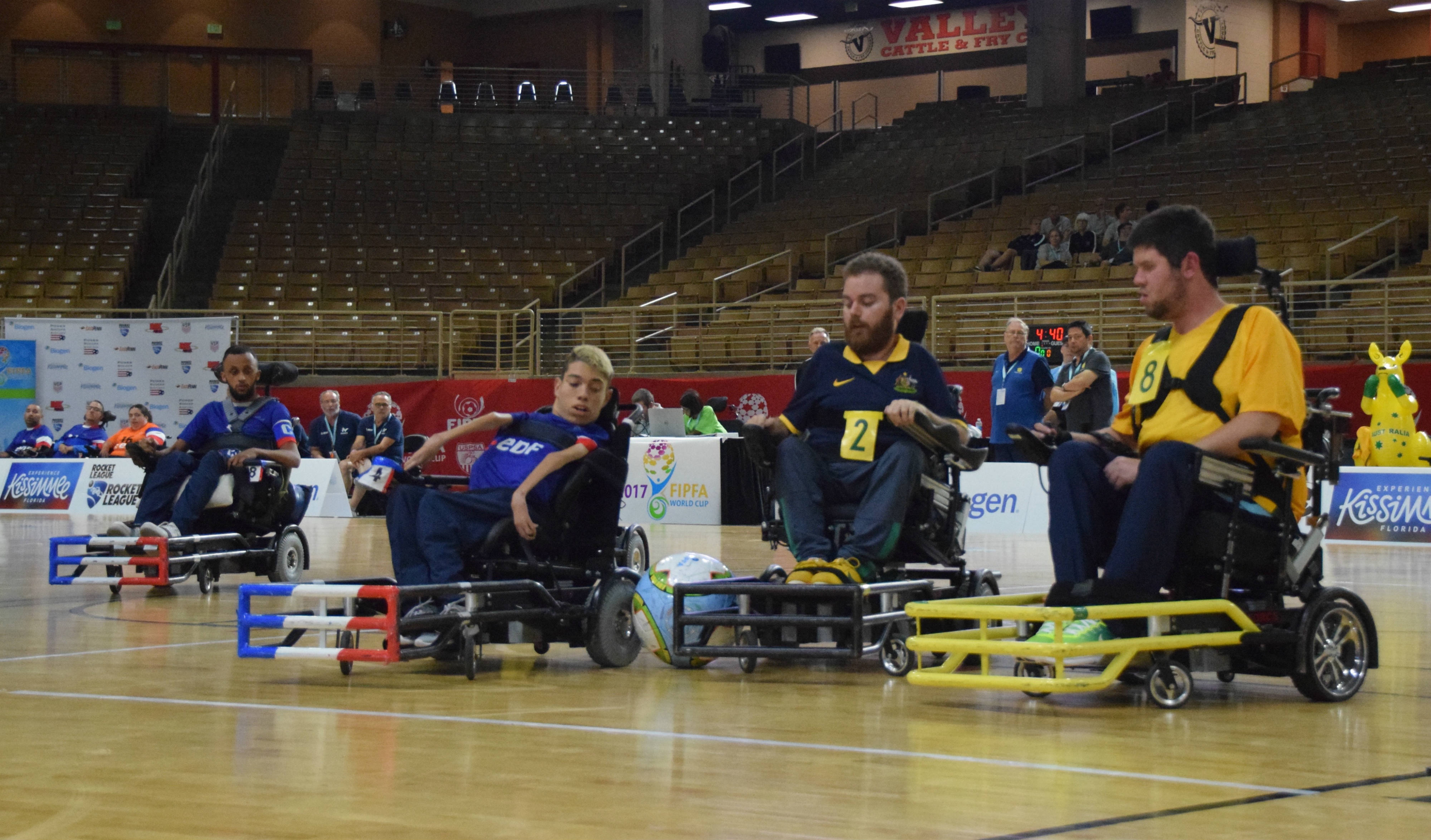This website uses cookies to improve your experience. We'll assume you're ok with this, but you can opt-out if you wish.
I’ve made many great friends through my years of playing wheelchair sports. It’s given me a chance to form friendships with people who also live with neuromuscular conditions. This has definitely given me a sense of perspective and the knowledge that, no, I am not alone. I was the only kid using a wheelchair at my school, so playing sport was the only time I spent with other powerchair users like me. For me, the wheelchair sporting community I am involved in feels like a family. When we need to talk about things, we’re there for each other. When we need emotional support, we have someone to turn to.

Just being part of a community is incredibly valuable, and knowing you are part of that community is a comforting thought. It is the people who create this family that are so important. Brothers, sisters, mums and dads are able to be around others who face the same experiences as they do. I was lucky enough to travel for powerchair football a couple of times, and this is when the family comes into its own.
I am a strong believer in the health benefits of sport, both physical and mental. When you’re being active on the court, your heart rate is increased, you’re working your lungs when you call out to your team mates, working on your hand-eye coordination and using your brain to solve problems. It can be an adrenaline rush, and you have to maintain your focus. Mentally, it is important to have goals and work towards them, even when it’s something as simple as trying to win a game of football. When you learn a new skill, or score a goal, set-up a team mate or make a save, you gain a sense of satisfaction, and when you achieve that as part of a team … it’s a great feeling of pride and camaraderie. And most importantly, it’s fun. Doing something you enjoy is always worthwhile, and has a huge beneficial impact on your overall health and well-being.
What if you need help to participate in sport? Many of us rely on family members for assistance, but with the advent of the NDIS, more and more people are able to access different activities through their funding. One of my goals is to play sport and fulfil my sporting commitments. I’ve been able to use support workers to help with this goal. They help me get to my destination and back again, transfer me between my day chair and sports wheelchair and assist with my training. It’s important to spell this out in your plan in detail so your planners know exactly what you need. You need to stress that playing sport is a goal of yours and outline the benefits it gives you. Good luck!
And lastly, what if you’re unsure about playing sport? What if you know someone who would love to play but doesn’t know where to start? My advice is to give it a go. Maybe you can come and watch to begin with, but if you jump right in, that’s when you get hooked. The family I have become part of through sport is so welcoming and supportive of new people, and we all have the same goal – to play sport and have fun. You might even make some lifelong friends along the way. I want others to have the same experiences I’ve had – without sport, these would not have happened.
Travelling in a group with 18 wheelchairs, not to mention the other equipment needed, is a struggle, but when everyone chips in, it becomes a smaller struggle. On my last trip, one of my brothers was asked to enter the hold of our plane to help unload our wheelchairs. Here’s a few tips I’ve learnt through my travels:
More information:
This Spinal Muscular Atrophy (SMA) Awareness month, we’re celebrating the people who redefine what’s possible living with a neuromuscular condition. Carolyn is one of them.
Say hello & contact our friendly team today.
Email: info@mdnsw.org.au
Phone: (02) 9888 5711
Freecall: 1800 635 109
Phone: (02) 9888 5711
Freecall: 1800 635 109
Email: info@mdnsw.org.au
Postal Address: PO Box 3071, North Strathfield NSW 2137
Muscular Dystrophy NSW would like to acknowledge the Traditional Custodians of the land on which we live and work, and we pay our respects to their Elders past and present. We extend that respect to all Aboriginal and Torres Strait Islander peoples.
"*" indicates required fields